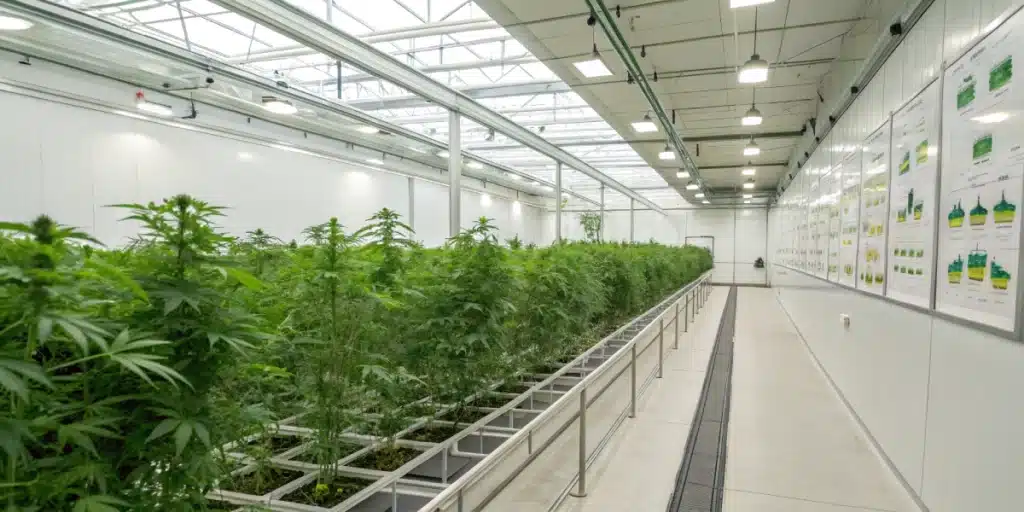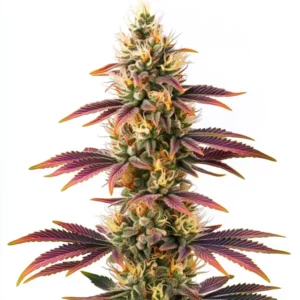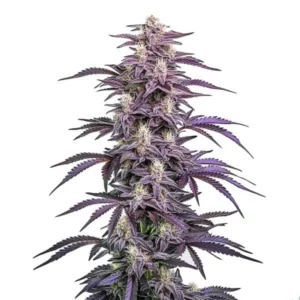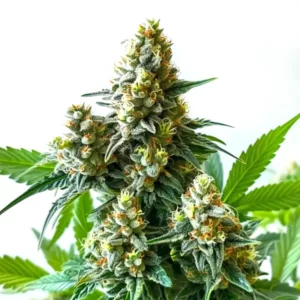
Organic vs Synthetic Fertilizer: Which is Best for Cannabis?
Summary of Fertilizer Types
Defining Organic Fertilizers
Organic fertilizers come from natural sources like plant debris and animal waste. They do not include artificial chemicals that synthetic options use. Typical examples are compost, manure, and bone meal. These fertilizers boost soil nutrients and improve soil health overall. Their charm lies in their slow-release feature that supplies nutrients steadily over time. They also support soil microbes that break down organic matter and enhance soil structure. They help maintain long-term fertility and sustain vibrant plant life. Many growers compare organic vs synthetic fertilizer methods to decide which benefits their garden best.
For cannabis growers, organic fertilizers create vibrant soil ecosystems. They promote beneficial microbial action and improve nutrient uptake for healthy plant growth. This natural fertilizer option provides a balanced nutrient supply that your plants can use effectively. Many cultivators prefer organic fertilizers for sustainable practices and achieving rich, earthy flavors in their final product. They also improve soil texture and boost long-term fertility while fostering resilient plant development and consistent yields.
Recommended Strains
Peyote Cookies
|
|
THC | 19% - 22% (Medium) |
|
|
Type | Feminized |
|
|
Yield | High |
|
|
Phenotype | 90% Indica / 10% Sativa |
Candyland Peyote
|
|
THC | 22% - 26% (High) |
|
|
Type | Feminized |
|
|
Yield | High |
|
|
Phenotype | 60% Indica / 40% Sativa |
Realizing Synthetic Fertilizers
Synthetic fertilizers result from chemical manufacturing processes. They deliver specific nutrients in concentrated forms and enable rapid absorption by cannabis plants. Common ingredients include ammonium nitrate, potassium sulfate, and urea. These fertilizers allow growers to tailor nutrient levels precisely for plants at different growth stages. They offer controlled nutrition and quick effects that many cultivators value. They also provide an efficient method to supply plants with immediate energy and essential minerals. Growers often debate organic vs synthetic fertilizer benefits when choosing nutrient solutions.
One major advantage of synthetic fertilizers is their predictability. Growers achieve consistent results with precise nutrient formulations and controlled feeding schedules. This reliable method gives clear instructions on dosage and timing. However, such control comes with drawbacks. Overuse can cause nutrient imbalances and harm long-term soil health. Comprehension of this balance proves vital for any cultivator aiming for a thriving cannabis garden. Growers must monitor plant responses carefully and adjust nutrient levels accordingly. This method delivers fast, measurable benefits yet requires careful management.
Promos & Deals
Benefits of Organic Fertilizers
Natural Nutrient Release
One standout feature of organic fertilizers is their natural nutrient release. Unlike synthetic fertilizers that deliver an immediate nutrient boost, organic options work slowly. This gradual release mechanism ensures cannabis plants enjoy a constant supply of nutrients during growth. The benefits of this method are many. It reduces shock to plants and fosters steady development. It minimizes risks associated with over-fertilization that can harm delicate growth phases. These fertilizers create a balanced feeding schedule that benefits plant health and enhances flavor profiles over time.
Organic fertilizers also support soil microbes that enrich the soil. They promote an environment where beneficial organisms thrive and break down organic matter. This process strengthens plant roots and increases overall garden productivity. The consistent nutrient supply results in robust plants with superior flavor and aroma. This natural process builds a foundation for healthy, resilient plants that produce high-quality buds. Many growers weigh organic vs synthetic fertilizer strategies when aiming for optimal natural growth.
Soil Health and Sustainability
Beyond nutrient delivery, organic fertilizers improve soil structure and increase water retention. They boost microbial diversity and create a thriving ecosystem within the soil. This active process supports effective nutrient cycling and improves overall plant health. Healthy soil provides a sustainable foundation for successful cannabis cultivation and long-term productivity. Organic methods protect the environment by returning vital nutrients to the soil and reducing chemical runoff.
Environmentally conscious growers appreciate organic fertilizers for their sustainability benefits. These options enhance soil fertility while reducing the carbon footprint of cultivation. They help maintain a balanced ecosystem that supports future crops. Many cultivators choose organic methods to protect natural resources and ensure consistent, high-quality yields. This investment in organic practices provides both economic and ecological benefits, satisfying diverse grower priorities. At times, a detailed review of organic vs synthetic fertilizer practices clarifies long-term sustainability.
Advantages of Synthetic Fertilizers
Quick Nutrient Delivery
One primary advantage of synthetic fertilizers is their quick nutrient delivery. When cannabis plants show signs of nutrient deficiency, synthetic options provide an immediate fix. This rapid absorption works well during critical growth phases like flowering or vegetative stages when nutrient demands peak. Growers enjoy the speed and reliability of these fertilizers. They offer measurable results and help plants recover quickly from stress. They also deliver specific nutrients in concentrated doses for immediate benefits. This efficiency supports fast, observable improvements in plant health and overall yield performance.
Ease of Application and Consistency
The convenience of synthetic fertilizers lets growers respond swiftly to their plants’ needs. If a grower notices yellowing leaves or stunted growth, a nitrogen-rich synthetic fertilizer application can revive plants quickly. This responsiveness makes synthetic fertilizers popular among commercial growers who aim for high yields. They require careful management to avoid over-fertilization. Overuse may cause nutrient lockout or toxicity that harms cannabis plants. Growers must monitor plants closely and adjust feeding schedules to maintain balance. This approach offers precise control and consistency that many commercial cultivators appreciate for rapid improvements. Growers sometimes compare organic vs synthetic fertilizer to optimize ease of use.

Comparative Analysis for Cannabis
Yield and Quality Differences
When comparing organic and synthetic fertilizers, yield and quality stand as major factors for cannabis growers. Many debates focus on which option produces better results. The answer often depends on strain, growing conditions, and cultivation techniques. Growers weigh factors like flavor, aroma, and plant health when making decisions.
Each method offers distinct benefits that appeal to different priorities. Many cultivators experiment to find the ideal balance for their specific needs. This analysis helps growers choose a fertilizer that meets both production goals and flavor expectations. The discussion on organic vs synthetic fertilizer guides these decisions carefully.
Cost and Environmental Impact
Cost stands as another important factor in the organic versus synthetic fertilizer debate. Synthetic fertilizers usually have a lower upfront price, which attracts budget-conscious growers. Growers appreciate the immediate savings synthetic options offer. However, long-term costs may rise if soil health suffers or nutrient deficiencies appear. These additional expenses can reduce overall profitability.
Evaluating short-term savings against future investments remains essential for successful cultivation. This cost analysis guides growers in balancing immediate benefits with long-term soil vitality and crop quality. Many use organic vs synthetic fertilizer comparisons to decide on a strategy that fits their budget and values.

FAQs about organic vs synthetic fertilizer
Which fertilizer type produces better yields?
Yield outcomes vary widely based on factors such as strain, growing conditions, and cultivation techniques. Synthetic fertilizers often produce rapid growth and higher yields in controlled environments. Many growers report quick, measurable gains when using synthetic options. They deliver fast results that appeal to commercial operations and efficiency-focused cultivators.
Are organic fertilizers safer for cannabis?
Organic fertilizers usually remain safer for cannabis since they contain no synthetic chemicals. They create a healthier growing environment that supports plant vitality and reduces chemical residues. Many cultivators favor organic choices for clean, natural produce. They encourage soil life and build a foundation for sustainable cultivation.
How do I decide between organic and synthetic options?
Choosing between organic and synthetic fertilizers depends on your goals, budget, and cultivation philosophy. Growers who value sustainability and rich flavor often choose organic methods for long-term benefits. Synthetic fertilizers attract those seeking rapid growth and quick yield results. Many cultivators test both methods on a small scale to see which one fits their conditions best.



















